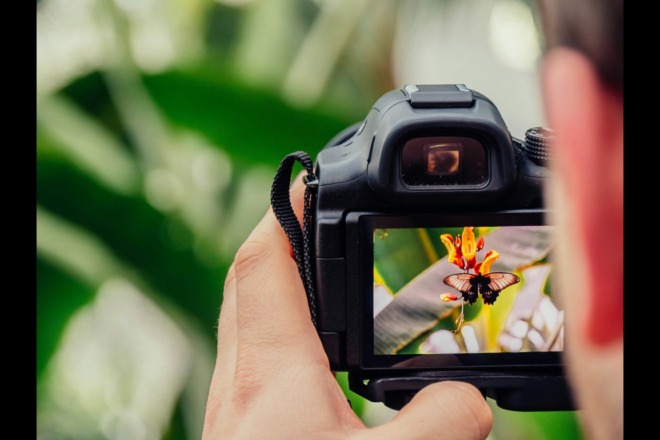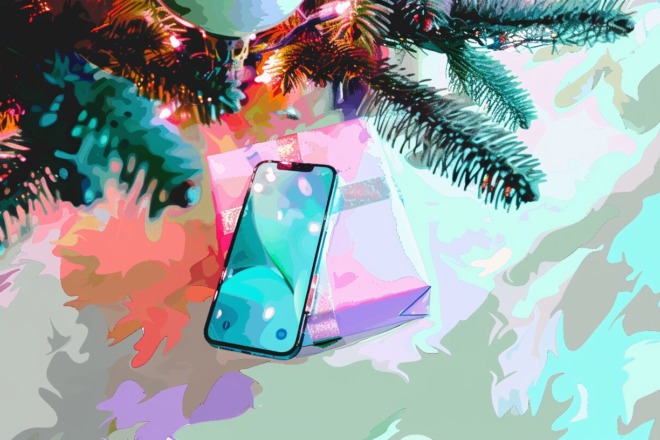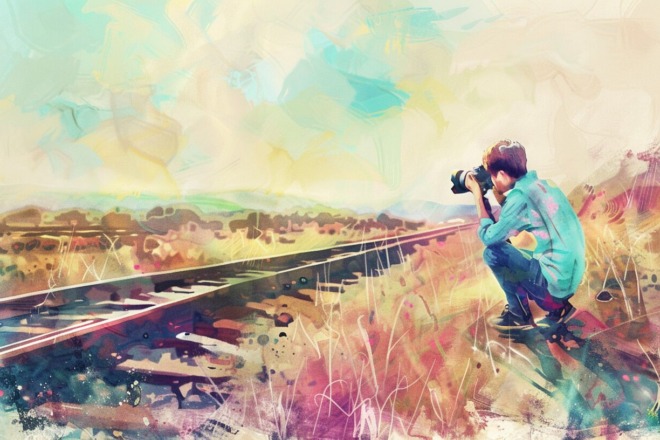Just getting started in your photography journey? If so, you’re probably wondering what the best camera for beginners is and how you’ll know which one to buy.
A DSLR camera is a pretty big investment, even on the lower end of costs. It’s important to make sure it’s a piece of equipment that will grow as you do. Sure, you can take photos with a smartphone, but you won’t have the control you get with a professional camera. You want something with which you can manually adjust the controls and start to play with aperture, depth of field and white balance.
There are around 49,560 employed photographers in the United States making an average of $42,770 per year. However, many more are just getting started or working in photography part-time. Just want to take a few family photos for those you know? Might want to one day work your way into a career? Either way, at the core of what the photographer does is the camera they take along with them. Without an advanced model, your photos just won’t be the same.
Some junk cameras on the market are posing as decent photographer cameras. At a minimum, you need one that works with a variety of features and has manual settings. We’ve looked at some of the current models on the market for you. Here are the best cameras for beginners list to get you started.
Nikon D3500
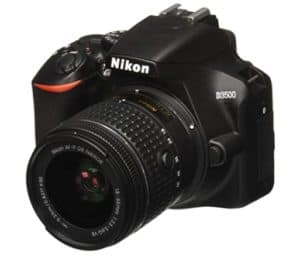
The Nikon D3500 doesn’t have all the bells and whistles of some other cameras. That said, it’s a good choice for those just getting started in photography. The camera has capabilities to 24.2 megapixels, 100 to 25,600 ISO and full HD. You can purchase additional lenses, flash and viewfinders to help you along your journey to taking better photos. This camera offers continuous shooting at a speed of five frames per second.
One of the neatest things about this beginner camera is that it will sync up with your smartphone or tablet. All you have to do is use an app called SnapBridge. You can remotely trigger the camera to get in on the picture. Or, simply send the photos over so that you can post them to your favorite social media sites. To make this the best camera for beginners, add lenses as needed for zoom.
Canon EOS Rebel T7

Canon really knows how to cater to hobby photographers or those just getting into the business. If you’re looking for the best camera for beginners, Canon should top your list. They offer their inexpensive Rebel T7 as part of a beginner’s bundle. Because beginners usually don’t have anything, they benefit from a bundle. Get the camera, an additional double zoom lens and a carrying bag. Also take advantage of an online class on the basics of using your new camera.
This camera has 24.1 megapixels, a wide ISO of 100 to 6,400 and built-in Wi-Fi for sharing your photos online. It has a fast processing speed that helps with low light images, keeping them sharp. You can also pair it with your phone for remote shooting, which is an excellent way to get that photo of wildlife you’ve been trying to capture. Later, you may want to add a wide-angle lens for landscape shots.
Olympus Tough TG-6
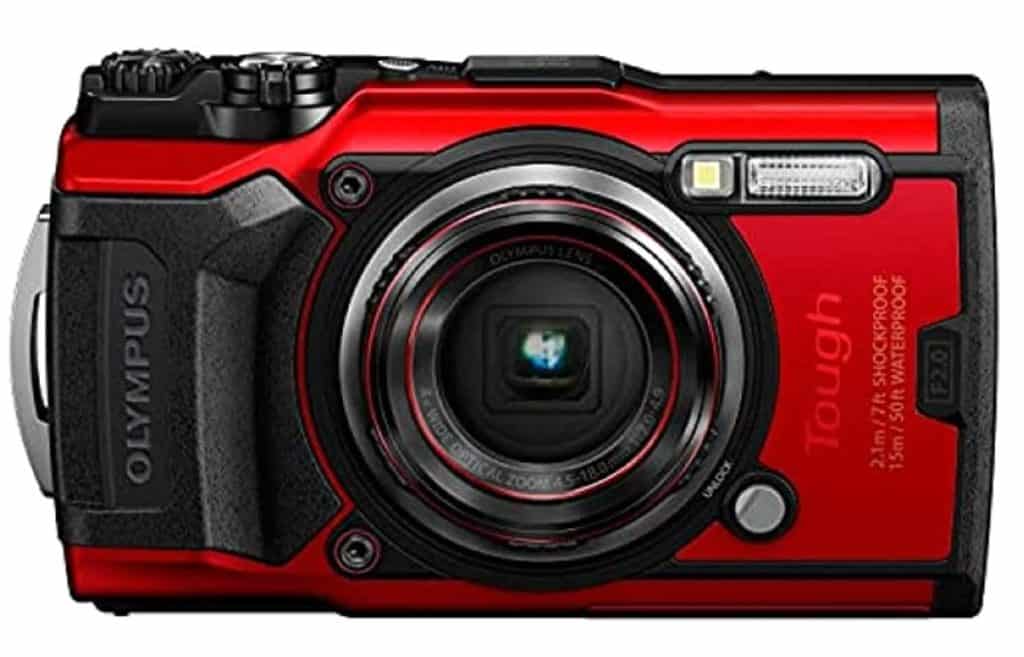
Seeking the best camera for beginners to take hiking or on a river rafting trip? The Olympus Tough TG-6 is your top option. The camera has the ability to shoot wide angles at 20 frames per second and is waterproof to 50 feet. The resolution comes in at 12 megapixels. You can add extra lenses with adapters such as the fisheye. However, you may not want to carry so much along when you’re out hiking, fishing or mountain climbing.
Canon PowerShot SX70
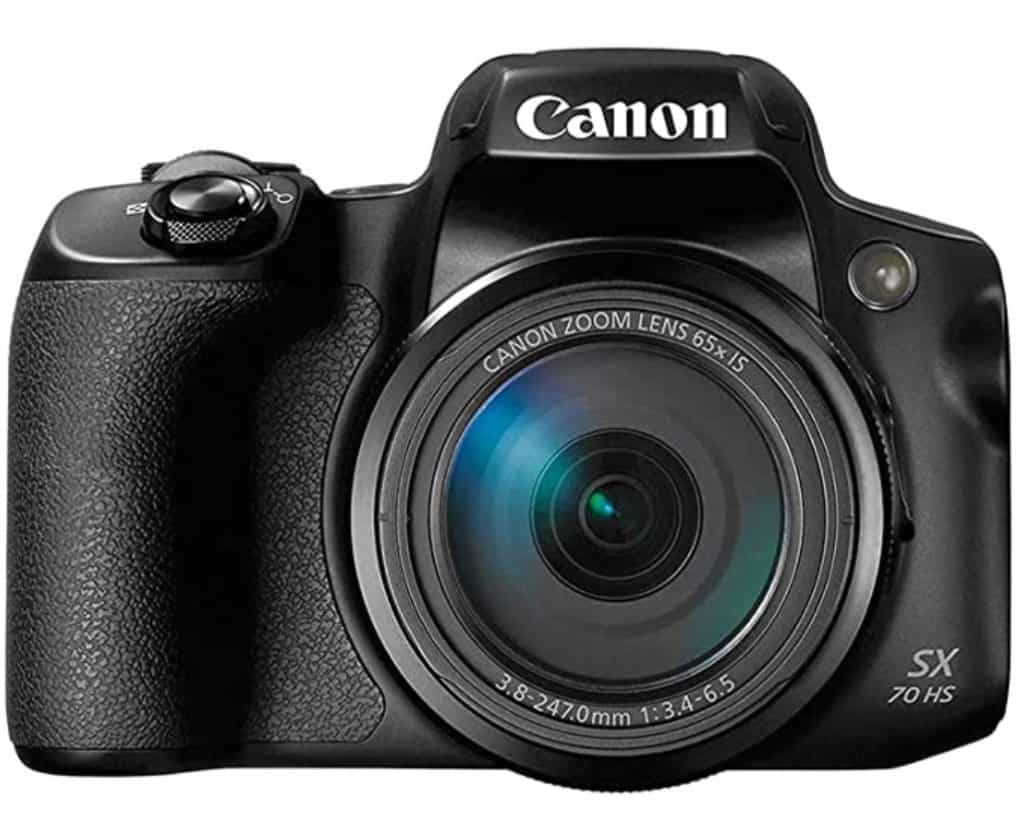
This little powerhouse of a camera offers a long zoom and weighs a mere 1.3 pounds. It’s light and easy to take anywhere. If you want a best camera for beginners that’s portable, the PowerShot SX70 is a good choice. It’s a 20-megapixel camera with a maximum ISO of 12,800. It works with a memory card, so you can take along extras and keep shooting even when you’ve filled the first one up.
This camera has built-in Wi-Fi and Bluetooth, so you can share your photos. It also has some built-in stabilization for when you’re out on the road. If you don’t have your tripod with you but need to eliminate shake, you’re in luck.
Sony RX100VA
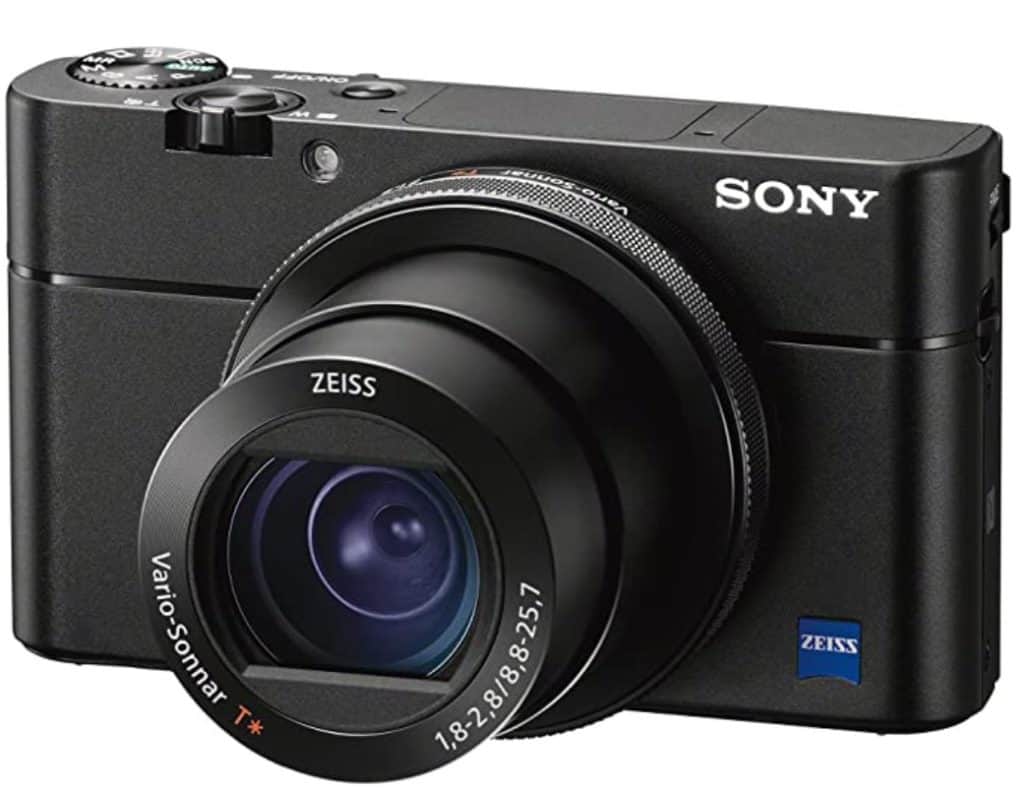
This compact camera is great for beginners who aren’t ready to utilize different lens sizes and need something more automatic. The viewfinder has a special Zeiss T coating and has a fast aperture for even low light situations. The lens adapts to either take micro or macro shots. The camera has a 20.1-megapixel sensor and a tiltable display for taking selfies.
Most of the controls can either be auto or manual, giving this little camera a lot of versatility. It is pocket-size, which is another convenience. You’ll need to upgrade to a different camera to add more functions later, but this is a great starter choice.
Nikon D500
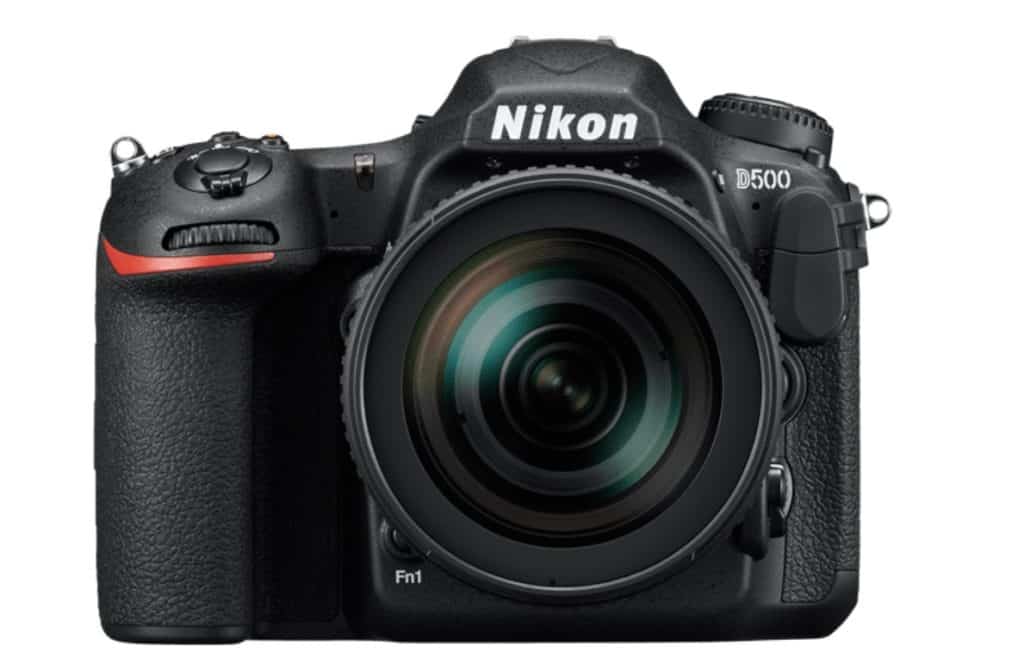
The Nikon D500 offers a lot more expandability. It’s perfect if you’d like to become a serious professional one day. It offers cinematic 4K UHD video, DX format, 20.9 megapixels and 10 frames per second continuous shooting. The ISO is 100 to 51,200 but expands to 1,640,000. The camera has built-in Wi-Fi and Bluetooth for syncing up to smartphones, printers and other devices. Add a full range of NIKKOR lenses, such as a fisheye, zoom or micro 45mm lenses.
Sony A6500
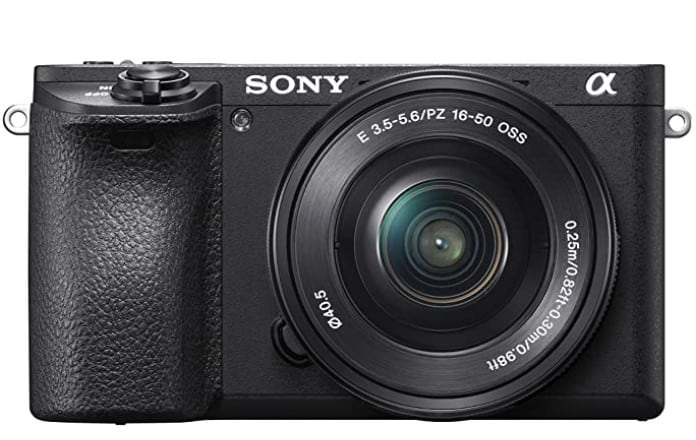
The Sony A6500 is a palm-sized digital camera with the ability to expand as your skills do. It comes with a 5-axis stabilization feature to stop camera shake, touch focus capabilities and 4D focus with fast aperture. It’s great for grabbing action shots. You can later equip the camera with additional lenses to expand your field of view and zoom capabilities. The camera comes with a 24.2 megapixel sensor for light sensitivity.
FUJIFILM GFX100
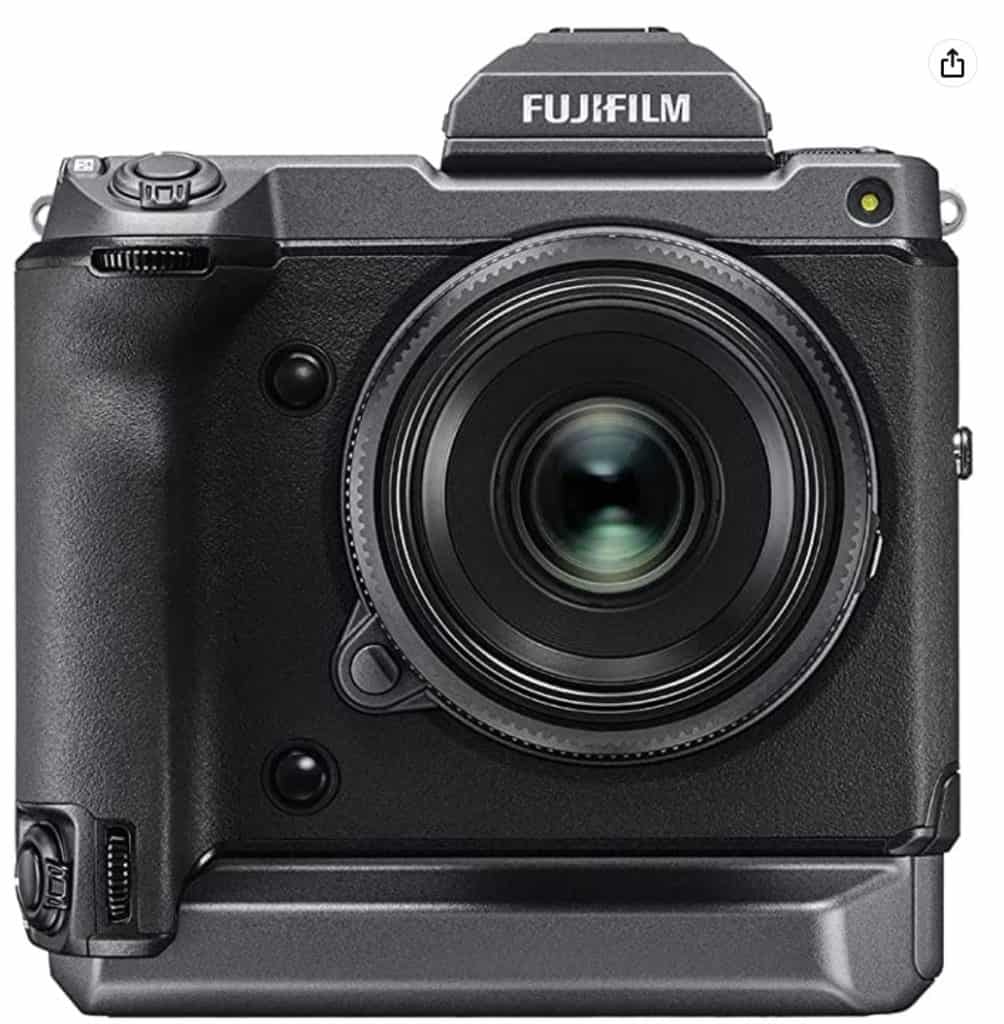
This compact, mirrorless digital camera offers some weather resistance, so you can take it on the road with you. It has an effective 102 million pixels (102 megapixels) and phase detection. The X-processor can handle super-fast data speeds. It has a continuous shooting speed of five frames per second and a refresh rate of 85 frames per second. The camera has ISO up to 12,800 and a 5-axis image stabilizer. It’s expandable in that you can incorporate additional accessories such as lenses, flash and viewfinders.
This camera takes images with extreme clarity, and most of the process is automated. That said, you’ll pay a hefty price tag for the mirrorless technology. This one is an interesting find if you have money to burn. However, you can likely do a decent job with much less expensive cameras.
FUJIFILM X-T30

Looking for that same mirrorless digital technology without so many bells and whistles? A great beginner FUJIFILM camera would be the X-T30. It offers continuous shooting as high as 30 frames per second, 26.1 megapixels and an ISO sensitivity up to 51,200. The camera will connect to your smartphone and other devices.
Pentax K-70

The Pentax K-70 is a real bargain in the beginning photography world. You’ll gain a camera capable of snapping up to six frames per second. It has built-in Wi-Fi and a 24-megapixel sensor. The camera is dust-proof and weather-resistant, allowing you to take it to outdoor events or into nature. It has auto ISO from 100 to 102,400.
This camera does have a built-in flash, which some people don’t like and others do. Keep that in mind when you’re choosing. You can always set the flash to off. Additions include better flash, additional batteries and lenses.
Canon EOS 77D
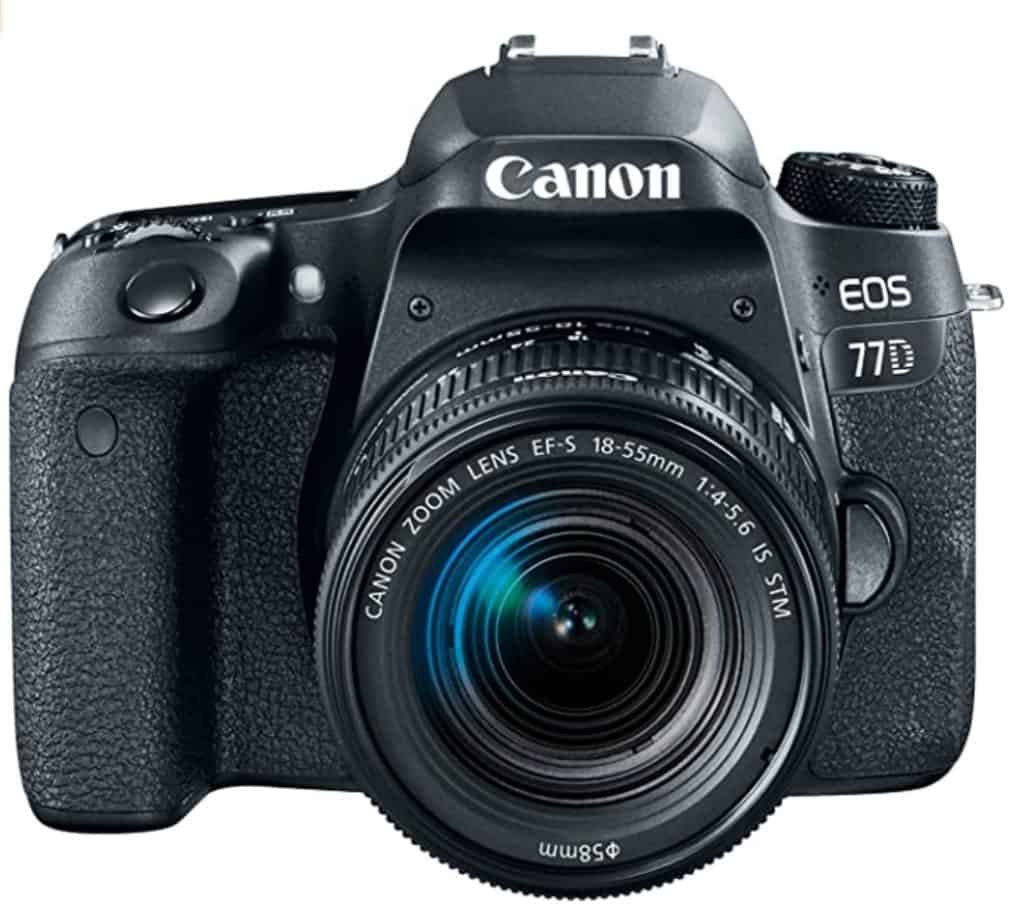
Here is another mid-range priced digital camera from Canon that meets the needs of most budding photographers. An optical viewfinder will give you a 45-point all cross-type autofocus. This gear will help you photograph moving objects at sporting events, frolicking wildlife and more.
The Absolute Best Camera for Beginners
The best camera for beginners can come in many forms. Its one easy enough for you to use but will give you enough features as you grow as a photographer. Study the different models out there and read through reviews to figure out what others like and dislike about different models. The 11 choices above are a great place to start with your hunt for the best camera for beginners. Be open to other models in each line too, however, especially if they offer scalability through additional lenses and accessories.

As an Amazon Associate, Designerly may get commissions for purchases made through links in this post.
About The Author
Eleanor Hecks is the Editor-in-Chief of Designerly Magazine, an online publication dedicated to providing in-depth content from the design and marketing industries. When she's not designing or writing code, you can find her exploring the outdoors with her husband and dog in their RV, burning calories at a local Zumba class, or curled up with a good book with her cats Gem and Cali.
You can find more of Eleanor's work at www.eleanorhecks.com.
